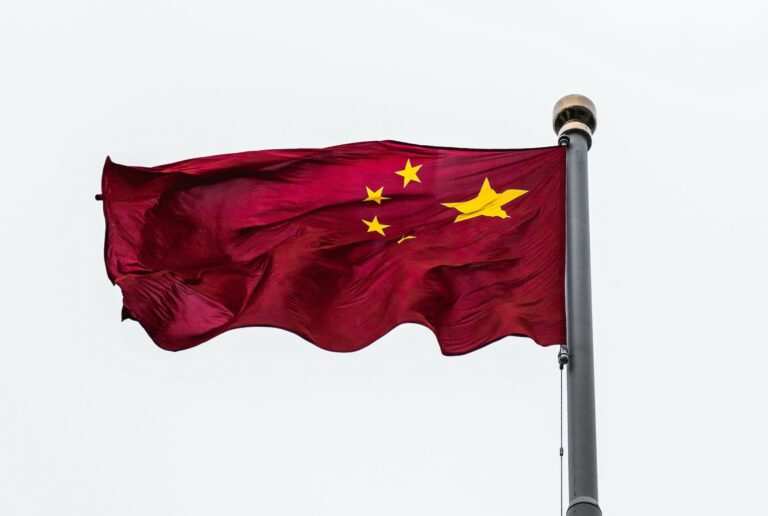
This article was originally published by Radio Free Asia and is reprinted with permission.
China’s Ministry for State Security said Monday it has arrested a man surnamed Huang, who heads a foreign consultancy in the country, as an alleged British spy, with one newspaper warning that there are “007s” everywhere in real life.
“Recently, the national security agency uncovered a case in which the British Secret Intelligence Service (MI6) used personnel from a third country to conduct espionage activities against China,” state news agency Xinhua reported, citing a statement on the ministry’s official WeChat account.
“The overseas national surnamed Huang is head of a foreign consultancy,” it said. “In 2015, the British Secret Intelligence Service (MI6) developed Huang as part of an intelligence cooperation relationship.”
Huang’s is the latest in a string of arrests of foreign nationals and raids on foreign consultancies that come in the wake of amendments to China’s Counterespionage Law in 2023, which has been criticized by investors for its vague definition of what exactly constitutes espionage.
It also appears to form part of a nationwide campaign to “awaken” China’s citizens to the existence of foreign spies in their everyday lives, according to recent ruling Communist Party propaganda.
“MI6 then instructed Huang to enter China multiple times using his public identity as cover to collect China-related intelligence for British espionage and to identify personnel for MI6 to incite to rebellion,” the report said, accusing the British intelligence services of giving “special spy equipment” to Huang for the purpose.
Huang had given up 12 pieces of evidence showing the leakage of “state secrets” and three other pieces of intelligence, according to the ministry.
He is currently being held under “criminal coercive measures,” according to Xinhua.
Foreign ministry spokesperson Mao Ning declined to comment on the report at a regular news briefing in Beijing on Monday, referring journalists to the ministry’s WeChat official account.
‘007s around us’
The nationalistic Global Times, sister paper to Communist Party mouthpiece the People’s Daily, drew parallels with the fictional hero of the James Bond books and movies, who is also known as “007.”
“Countries such as the UK, in line with their broader strategy of countering China, have expanded their espionage efforts beyond traditionally targeted areas to encompass economic, military, scientific, technological, and financial domains,” it said.
The paper quoted Li Baiyang, associate professor of intelligence studies at Nanjing University, as saying: “We should be wary of the 007s around us; we shouldn’t naively think that 007 is a character that exists only in films.”
“It [espionage] is actually everywhere, [and they are] planting their spies in other countries,” Li told the paper, echoing recent public service announcements about “foreign spies” who have allegedly infiltrated every aspect of life in China.
Last August, the security ministry opened an official account on WeChat, calling on Chinese citizens to “enhance the awareness of counterespionage of the whole society, and form a strong joint force to maintain national security.”
State media said it was a necessary move, to put all of China on an anti-espionage footing as a result of new “criminal activities” that endanger national security.
Online comic book
In an apparent bid to broaden popular participation in the nationwide spy-catching campaign, the ministry on Sunday launched an online comic book detailing a fictionalized version of its work that it said was based on a real case.
Foreign businesses and lawyers have warned in recent interviews with Radio Free Asia that the amended Counterespionage Law gives no definition of what constitutes a “state secret,” a matter of national security or the national interest but expands the definition of espionage to cover cyberattacks against government departments or critical information infrastructure.
It also gives the authorities broader powers to access data and electronic equipment and to issue travel bans to individuals.
In October, the authorities arrested a 39-year-old Chinese national, identified only by his surname Hao, whom the ministry claimed was recruited by the CIA while he was studying in Japan.
In November, the Chengdu Intermediate People’s Court court in the southwestern province of Sichuan sentenced a man identified by his surname Wang to six years’ imprisonment and the confiscation of 500,000 yuan (US$68,700) of his personal assets after finding him guilty of “espionage.”
A Chinese lawyer told Radio Free Asia at the time that definitions in the Counterespionage Law are so vague that even government information in the public domain could be classified as a “state secret.”
0 comments :
Post a Comment